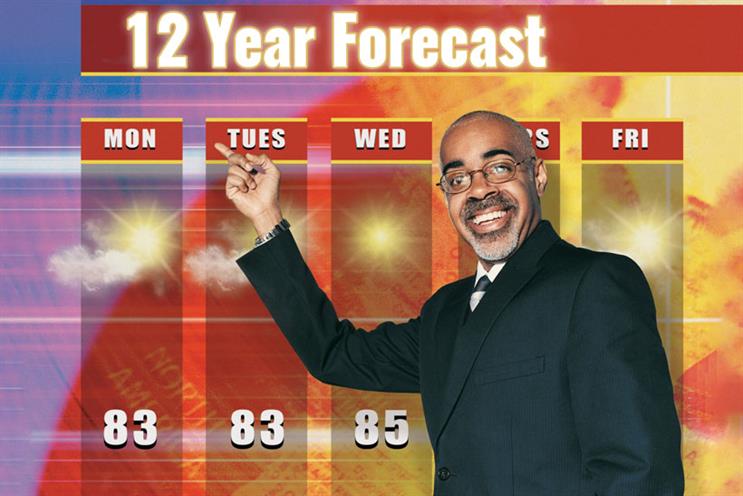In an age where bad news has 10 times the traction of good, we may start to see a few more brands discover that making a few enemies isn’t such a bad thing
It’s predictions season. And as we read once again that this year really will be the "year of mobile", we’re reminded trends don’t run on a 12-month cycle. Big cultural shifts tend to emerge gradually, over a decade or more, forcing trend spotters to confirm that things are pretty much the same as they were last January.
In fact, if you reckon that something’s going to take hold over the next 12 months, it’s probably already here. Let’s face it, none of these things we’re talking about are really ‘new’.
If we really want to talk about tomorrow’s agenda then we shouldn’t be looking ahead 12 months; but rather 12 years. Like gardeners studying the soil, the light, the humidity, the temperature, the neighbouring fauna, and predicting what might grow before the first shoots emerge, we too can look into the future through today’s market conditions.
So what are the trends we won’t be seeing in 2016 but just might have arrived on the scene in twelve years time?
Anti-marketing
Any time a seismic event occurs in the market, the ground shifts beneath our feet, and the changed conditions pave a way for something new. Last year’s , and as discussed on these pages before it accidentally revealed a whole new marketing strategy – working through your brand enemies rather than your fans.
To deliberately go out and identify the people with the exact opposite opinions of your target audience and attack them requires a ‘robust’ constitution. Even Protein World balked at this with its relatively soft new campaign. However, in an age where bad news has 10 times the traction of good, we may start to see a few more brands discover that making a few enemies isn’t such a bad thing. We may not see Peperami launch an all-out assault of vegetarians tomorrow, but such a tactic doesn’t seem as far-fetched as it once was.
Fundraiser products
As more and more brands start to elevate ‘purpose’ in their identities, a strange thing will start to occur. The centrality of the core product in their business will start to diminish, and in turn the sensation of buying it will take on a whole new meaning.
Take The Tate. Among other things, it sells postcards. You would, however, never describe it as a ‘postcards company’. You can buy postcards from it, but in doing so you get the feeling that the proceeds are going to something quite cool as a bonus.
The most progressively purposeful brands are starting to take a similar shape. Red Bull, for instance, now gives the impression that its drinks brand is more like a subsidiary of its business than the heart of it. The result is that buying a can of Red Bull feels like fundraising for the next Felix Baumgartner, rather than being the end of the transaction as it would feel with, say, Coke.
The death of pointless brands
The growth of this fundraiser principle will start to shine a light on the pointless brands within our midst of which there are thousands – brands that have neither a unique product (I would say, like Twitter), nor a clearly defined role within their market (like, say, Waitrose). They will be left with a choice: to either rework themselves internally to become intrinsically interesting or worthwhile (like the fundraiser brands), or to be slowly edged out of the market by a more savvy consumer base.
The retailers’ realisation that endless choice isn’t really helpful to customers () is accelerating this trend, so brands are going to have to move quickly to ensure they remain the right side of the divide.
The dissolution of marketing departments
The eventual consequence of this broad drive for brands to ‘have a point’, coupled with increasing transparency and market efficiency, will be for brands’ primary marketing tool to be the way they actually operate, rather than the campaigns they create. This will mean that rather than being just another department in a business, ‘marketing’ (as it won’t be known) will become more of an umbrella approach, with the responsibility held by everyone.
Whether or not this will mean marketing departments taking over businesses or being edged out will lie in the hands of the marketers themselves. Good luck!


